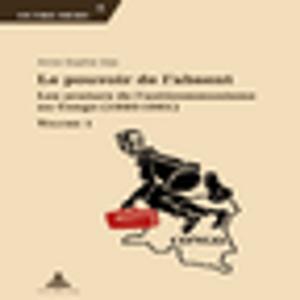Scripts and Communication for Relationships
Second Edition
Nonfiction, Reference & Language, Language Arts, Library & Information Services, Communication, Social & Cultural Studies, Political Science| Author: | James M. Honeycutt, Pavica Sheldon | ISBN: | 9781433142642 |
| Publisher: | Peter Lang | Publication: | January 19, 2018 |
| Imprint: | Peter Lang Inc., International Academic Publishers | Language: | English |
| Author: | James M. Honeycutt, Pavica Sheldon |
| ISBN: | 9781433142642 |
| Publisher: | Peter Lang |
| Publication: | January 19, 2018 |
| Imprint: | Peter Lang Inc., International Academic Publishers |
| Language: | English |
The book is divided into five parts: (1) Emotions, Imagination, and Physiology of Relationships, (2) Bases of Relational Scripts, (3) Relational Escalation and Deescalation, (4) Relationship Scripts in Context, and (5) Cautions and Recommendations. The authors discuss the basis of relationship scripts, emotions, imagery, and physiology of relationships including romance, friendship, work associates, mentors, and Facebook friends. They argue that people’s expectations for relational development influence their communication, faith, and commitment in relationships. Misconstruing sexual or flirtatious intent, for example, is derived from having different scripts about attraction. They discuss abusive relationships including characteristics of abusers, stalking, and verbal and physical aggression.
Designed for classes in psychology, communication, sociology, family studies, and social work, this book provides a comprehensive overview of how scripts and communication are used in relationships. Guidelines based on developing and improving verbal and nonverbal communication competence are provided. A downloadable teacher’s guide is also available.
The book is divided into five parts: (1) Emotions, Imagination, and Physiology of Relationships, (2) Bases of Relational Scripts, (3) Relational Escalation and Deescalation, (4) Relationship Scripts in Context, and (5) Cautions and Recommendations. The authors discuss the basis of relationship scripts, emotions, imagery, and physiology of relationships including romance, friendship, work associates, mentors, and Facebook friends. They argue that people’s expectations for relational development influence their communication, faith, and commitment in relationships. Misconstruing sexual or flirtatious intent, for example, is derived from having different scripts about attraction. They discuss abusive relationships including characteristics of abusers, stalking, and verbal and physical aggression.
Designed for classes in psychology, communication, sociology, family studies, and social work, this book provides a comprehensive overview of how scripts and communication are used in relationships. Guidelines based on developing and improving verbal and nonverbal communication competence are provided. A downloadable teacher’s guide is also available.















